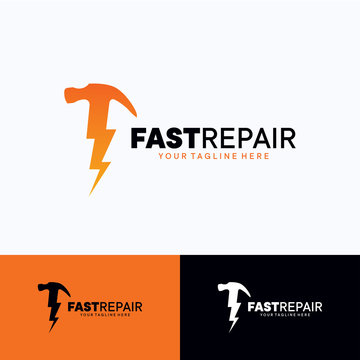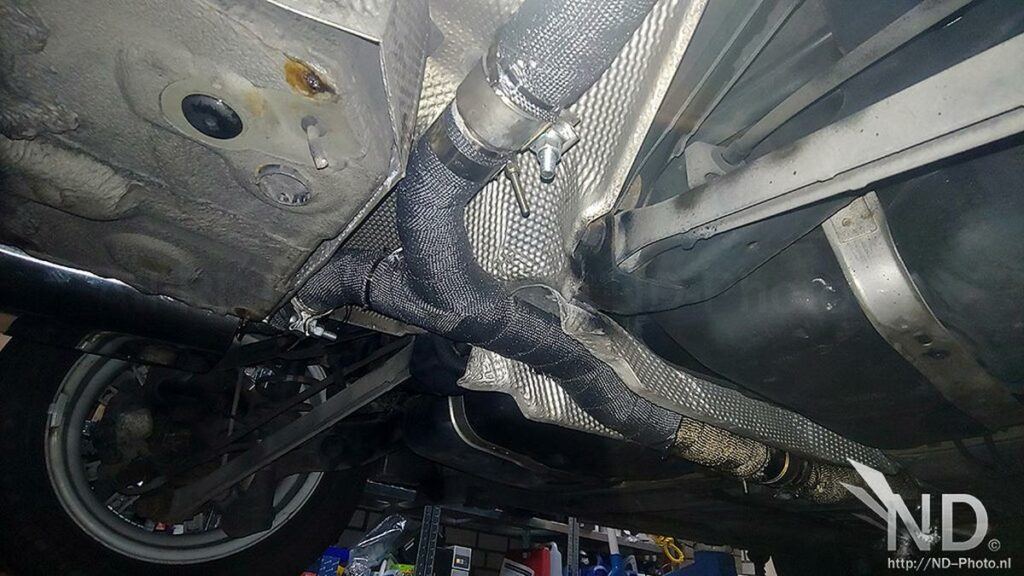Are you a car enthusiast looking to take your driving experience to the next level? Do you want to unlock your car’s full potential and achieve maximum performance? Look no further! In this blog post, we will explore the world of performance tuning and modifications for ultimate driving. From engine upgrades to suspension enhancements, we’ll cover everything you need to know about taking your car from ordinary to extraordinary. So buckle up and get ready to learn how to maximize your car’s potential!
Understanding Performance Tuning and Modifications: A Beginner’s Guide
Performance tuning and modifications can take your car to the next level, enhancing its speed, agility, and overall performance. However, before diving into the world of aftermarket parts and accessories for your vehicle, it’s essential to have a basic understanding of what performance tuning entails. First off, performance tuning refers to the process of optimizing a car’s engine or suspension components beyond factory settings with the goal of increasing horsepower or handling capabilities. On the other hand, modifications are physical changes made to specific parts of your car aimed at improving its overall look and feel.
While most stock vehicles offer impressive features straight from manufacturers, making some tweaks can maximize their potential for ultimate driving experience. Whether you’re looking to improve acceleration time or increase top speed on race tracks- upgrades like turbochargers/superchargers systems & ECU tunings can go a long way in meeting those goals. Stay tuned as we explore how investing in quality performance upgrades could transform your everyday commuter into an unprecedented powerhouse!

The Benefits of Investing in Performance Tuning and Modifications for Your Car
Investing in performance tuning and modifications for your car can greatly enhance its overall driving experience. Not only does it increase the vehicle’s horsepower and torque, but it also improves other crucial aspects such as acceleration, handling, and braking performance. With a more powerful engine under the hood, you’ll be able to tackle difficult terrain with ease while enjoying better fuel economy.
Apart from improved performance, upgrading your car with aftermarket parts such as air intake systems, exhaust systems or suspension kits can also improve its appearance. It gives you the chance to customize your ride according to your preferences.
Overall investing in performance tuning is an investment that pays off well if done right. A professionally tuned car will have higher resale value than a stock one because of its unique attributes that provide superior driving capabilities compared to others on the same platform.

Common Types of Performance Upgrades for Your Vehicle
Common Types of Performance Upgrades for Your Vehicle
When it comes to performance tuning and modifications, there are several options available to enhance your car’s performance. One of the most popular upgrades is a cold air intake system, which increases airflow to the engine and improves horsepower. Another common upgrade is a performance exhaust system, which enhances exhaust flow and gives your car a more aggressive sound.
For those looking for more significant upgrades, a turbocharger or supercharger can provide a substantial boost in power. Upgrading your car’s suspension system can also improve handling and cornering ability.
Other popular upgrades include upgrading the fuel system, installing high-performance brakes, and adding lightweight wheels to reduce unsprung weight.
It’s essential to note that not all upgrades are suitable for every vehicle or driving style. It’s crucial to consult with an experienced mechanic or tuner before making any modifications to ensure they are safe and effective for your specific car.
How to Choose the Right Mechanic for Performance Tuning and Mods
Choosing the Right Mechanic for Performance Tuning and Mods
Performance tuning and modifications are not something you want to leave in the hands of just any mechanic. It’s crucial to find a reputable and experienced professional who knows what they’re doing. Look for someone with expertise in your specific make and model of vehicle as well as experience with performance upgrades.
When choosing a mechanic, do some research online or ask for recommendations from fellow car enthusiasts. Check their reputation on review sites like Yelp or Google Reviews. Ask about their certifications, warranties, pricing, and experience with different types of performance mods.
Don’t be afraid to ask questions before handing over your keys. A good mechanic will take the time to explain each upgrade recommendation thoroughly and answer all your queries clearly. They should also provide complete transparency throughout the process by letting you know each step taken during installation or tuning.
Remember that poorly executed performance upgrades can lead to costly repairs down the line. So choose wisely when selecting a mechanic for your car’s ultimate driving potential!

DIY-Performance Mods: Quick Fixes You Can Do Yourself
DIY-performance mods are a great way to improve your car’s performance without breaking the bank. One of the easiest and most effective mods is upgrading your air intake system. A high-performance air filter and intake system can increase airflow to your engine, resulting in improved horsepower and torque. Another simple mod is upgrading your spark plugs and ignition coils. This can improve combustion efficiency, resulting in better fuel economy and increased power. For those looking for a more advanced DIY project, installing a performance exhaust system can significantly improve your car’s sound and performance. However, it’s important to note that improper installation can lead to leaks or even damage to your engine. Always do thorough research before attempting any DIY-performance mods and consult with a professional if needed.

Top Brands for Quality Performance Parts and Accessories
Top Brands for Engine Performance Upgrades
When it comes to engine performance upgrades, there are a few top brands that stand out in the market. K&N is a well-known brand that produces high-quality air filters and intake systems that can increase horsepower and torque. MagnaFlow is another popular brand that offers exhaust systems designed to improve exhaust flow and enhance engine sound. Other notable brands include Borla, Flowmaster, and aFe Power. It’s important to do your research and choose a reputable brand that offers products specifically designed for your car’s make and model. Investing in quality performance parts from these top brands can significantly improve your car’s overall performance and driving experience.
Quality Suspension and Brake Components: Leading Manufacturers
When it comes to performance tuning and modifications, having quality suspension and brake components is crucial for both safety and optimal driving experience. Some of the leading manufacturers in this field include Brembo and Wilwood, both known for their high-performance brake systems. For suspension upgrades, KW Suspensions and H&R Springs are top choices, offering adjustable coilovers and sway bars for improved handling and stability. Other notable brands include Eibach, Megan Racing, and Tein. Investing in these quality components can make a significant difference in your car’s overall performance, providing better control, responsiveness, and stopping power.
The Best Exhaust Systems for Improved Power and Sound
When it comes to improving your car’s performance, upgrading your exhaust system is a must. Not only does it improve power and sound, but it can also increase fuel efficiency. Two of the best brands for performance exhaust systems are Borla and Magnaflow. Borla offers a range of stainless steel exhaust systems that are designed to maximize airflow and reduce backpressure, resulting in improved horsepower and torque. Magnaflow, on the other hand, offers a variety of exhaust systems that are engineered to deliver a deep, aggressive tone while also increasing performance. Both brands offer high-quality products that are built to last and can significantly enhance your driving experience.
Performance Accessories: Where to Find Top-of-the-Line Products
When it comes to performance accessories, it’s important to invest in top-of-the-line products that will truly enhance your car’s capabilities. Some of the best brands in the market include Brembo, known for their high-performance brake systems, and K&N, who specialize in air intake systems that improve horsepower and acceleration. Another top brand is MagnaFlow, which offers high-quality exhaust systems that not only improve performance but also add a deep, aggressive sound to your car. For suspension upgrades, look no further than KW Suspensions and their range of coilovers and sway bars. Investing in these top brands will ensure that your car reaches its full potential on the road or track.

The Impact of Aftermarket Exhaust Systems on Your Car’s Performance
Why Upgrading Your Exhaust System is Crucial for Performance Tuning
Upgrading your exhaust system is a crucial step when it comes to achieving optimal performance tuning and modifications for your car. With an upgraded exhaust system, you can enhance the engine’s performance by improving the airflow, increasing horsepower and torque, and creating a more aggressive exhaust note. Aftermarket exhaust systems come in different materials like stainless steel or titanium and types such as cat-back, axle-back or header-back systems that provide varying degrees of improvement based on individual needs. Not only does upgrading your exhaust system improve performance results during acceleration but it also reduces backpressure resulting in better gas mileage overall.
Understanding the Science Behind Aftermarket Exhaust Systems
Aftermarket exhaust systems are a popular choice for car enthusiasts looking to improve their vehicle’s performance. These systems are designed to increase exhaust flow, which can lead to improved horsepower and torque. The key to understanding the science behind aftermarket exhaust systems is knowing that they work by reducing back pressure in the exhaust system. This allows the engine to breathe more easily, which can result in increased power and efficiency. By upgrading your car’s exhaust system with high-quality aftermarket parts, you can unlock its full potential and enjoy a more exhilarating driving experience.
Comparing Different Types of Exhaust Systems and Their Benefits
Aftermarket exhaust systems can significantly improve your car’s performance by increasing horsepower and torque, as well as enhancing the sound of your engine. There are various types of exhaust systems available, including cat-back, axle-back, and header-back. Cat-back systems are the most popular and provide the best balance between performance gains and cost. Axle-back systems are cheaper but offer less significant gains. Header-back systems are the most expensive but provide the most significant performance gains. Upgrading to an aftermarket exhaust system can also improve fuel efficiency and reduce engine heat. Overall, investing in a high-quality exhaust system is a great way to improve your car’s performance and driving experience.
Installation Tips and Tricks for Optimal Performance Gains
When installing an aftermarket exhaust system, it’s important to keep in mind a few tips and tricks to ensure optimal performance gains. First, choose an exhaust system that is specifically designed for your car’s make and model. This will ensure a proper fit and prevent any leaks or damage to your vehicle. Second, consider the material of the exhaust system. Stainless steel is a popular choice due to its durability and resistance to corrosion. Third, make sure the installation is done by a professional mechanic who has experience with performance modifications. A proper installation can maximize exhaust flow and improve horsepower and torque gains.

Nitrous Oxide Injection: Does It Really Boost your Car’s Speed?
Nitrous oxide injection is a popular method for boosting engine power. It introduces additional oxygen into the combustion chamber, allowing more fuel to be burned and increasing horsepower. However, it’s important to note that this process can put added stress on your car’s engine and drivetrain components. That’s why proper installation and tuning are key when using nitrous oxide injection.
Another thing to keep in mind is that nitrous oxide injection can be dangerous if not used correctly. Because of this, many racing organizations have strict rules around its use. You should also make sure that your vehicle has adequate safety features in place before installing a nitrous system.
Overall, while nitrous oxide injection can provide a significant increase in horsepower, it requires careful consideration and proper implementation to avoid damaging your vehicle or putting yourself at risk on the road or track.
Tracking Progress Through Dyno Testing & Data Logging
Dyno testing and data logging are crucial steps in tracking the progress of your car’s performance upgrades. Dyno testing involves placing your car on a dynamometer, which measures the power output of your engine. This test allows you to see how much horsepower and torque your car is producing before and after modifications. Data logging, on the other hand, involves recording various parameters such as air/fuel ratio, boost pressure, and engine speed while driving. This data can then be analyzed to fine-tune your car’s performance.
It’s important to note that dyno testing and data logging should be done by a professional mechanic who specializes in performance tuning. They have the necessary equipment and expertise to accurately measure and analyze your car’s performance. With regular dyno testing and data logging, you can ensure that your car is running at its best and make adjustments as needed to achieve optimal performance.
Safety Tips while Driving with Increased Engine Power: What you should know
When you invest in performance tuning and modifications, your car’s engine power will increase significantly. However, it’s crucial to remember that with increased power comes greater responsibility. It’s essential to drive safely and defensively when operating a high-performance vehicle.
One of the most important things to keep in mind is the braking system of your car. Upgrading brakes should be one of the first modifications you make before increasing horsepower or torque figures as it will not only improve stopping distances but also help prevent brake fade.
Another key factor is tire selection – always use performance-rated tires that are designed for higher speeds than normal passenger car tires.
It’s also important to be aware of road conditions and weather when driving aggressively as these can affect your control over the vehicle.
Finally, don’t forget about regular maintenance checks on all components involved such as oil levels, belts, hoses etc., especially if you’re using your car regularly for racing purposes. Following these safety tips will help maximize enjoyment from your tuned ride without putting yourself or others at risk!
In conclusion, performance tuning and modifications can significantly enhance your car’s speed, power, and overall driving experience. Whether you’re a beginner or an experienced car enthusiast, there are plenty of options available to help you maximize your vehicle’s potential. From simple DIY mods to more complex upgrades, it’s important to choose the right mechanic and quality parts to ensure optimal results. Remember to prioritize safety while driving with increased engine power and always track your progress through dyno testing and data logging.
If you’re interested in learning more about performance tuning and modifications, be sure to check out our other content for expert advice and insights. Start exploring today and take the first step towards unlocking your car’s true potential!
FAQ
Who can benefit from performance tuning and modifications?
Anyone looking to improve their vehicle’s speed and power.
What are some common modifications for performance tuning?
Upgraded exhaust systems, air intakes, and engine tuning.
How can performance tuning affect fuel efficiency?
It may decrease fuel efficiency, but often results in improved power.
Who should perform performance tuning and modifications?
Experienced mechanics or professionals with a proven track record.
What are some objections to performance tuning?
Concerns about voiding warranties or damaging the vehicle.
How can objections to performance tuning be addressed?
Choose reputable professionals and discuss any concerns with them.

